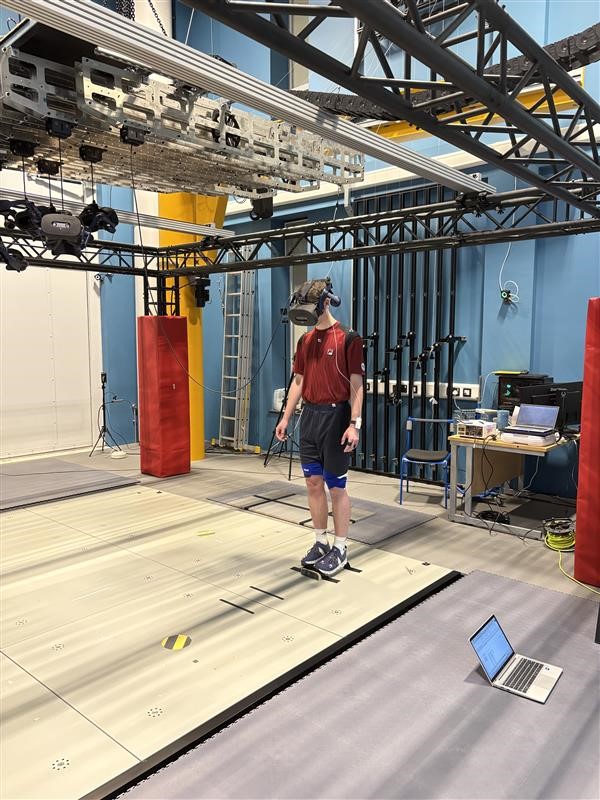Researchers at the University of Exeter’s Medical School are exploring the neural and biomechanical mechanisms involved in balance control, to support future research into fall prevention and rehabilitation strategies.
Taking place at VSimulators, the study of healthy young adult participants is focusing on predictive processing—the brain’s ability to anticipate and adapt to movement in dynamic settings, drawing from prior experiences and new sensory inputs.
Headset virtual reality is being used throughout the study to create an immersive environment for testing.
By examining how anxiety impacts balance stability, the research aims to enhance understanding of sensorimotor integration and postural control, particularly in individuals who experience high levels of anxiety.
It is hoped the protocol from the testing can be used in future to benefit older adults and clinical populations, helping to improve fall prevention and rehabilitation strategies.

